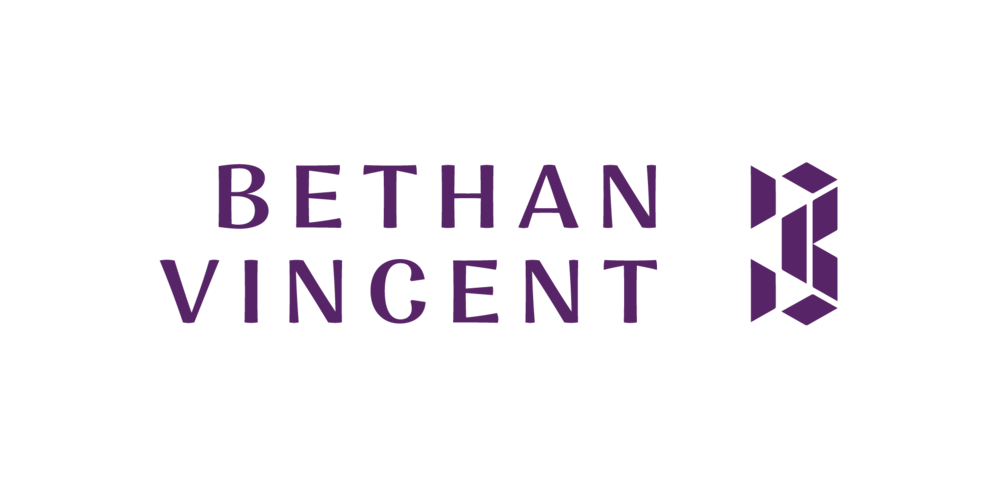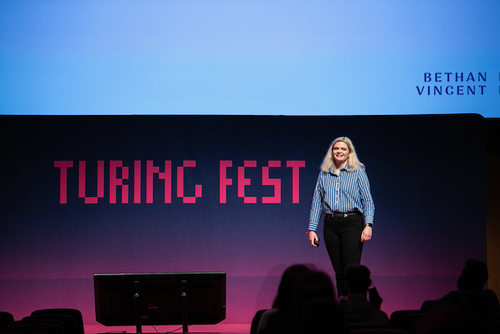Being British, I find it extremely uncomfortable to talk about myself in a positive manner. I generally try to deflect all compliments with some form self-effacing comeback - "oh I wasn't really that involved in the project" or "It was just luck."
With this in mind, I'm going to do my best to talk about the best thing I have ever created (even writing that makes me cringe internally, despite the fact I honestly believe it).
The thing is though, I am seriously proud of what I have made.
Even if the whole thing was rendered wholly non-existent tomorrow, I know I worked hard to put together something that speaks to a bold and unambiguous goal - "How do we make this world better, for everyone?"
This is the story of how I made said thing.
The beginning
In 2014 I took on a business, Bright Ethics, which at the time was operating as a marketing consultancy that was working on the idea of building an ethical assessment.
The owner wanted to pass on the business for personal reasons and during discussions both the name "Bright Ethics" and idea of an ethical assessment really excited and intrigued me. (I know you shouldn't buy a business for a name, but hey, a good one doesn't hurt things).
Despite the fact I had no idea what I was doing - I took the leap and acquired the business with a couple of other directors.
Start at the problem
All good business ideas start with identifying and solving a problem.
That's start-up orthodoxy 101 right.
Ours was a simple one:
How do you know whether a business is a good business?
(E.g. one that doesn't screw over it's workers, treat the planet like garbage or invest in a supply chain riddled with examples of modern slavery - we will come onto more nuanced definitions shortly though!)
This leads to a secondary question - can you trust a business when it says it is a "good" business?
E.g. lots of organisations like to talk about being "green," "eco-friendly" and "sustainable"
But what do these terms actually mean? How do you quantify them? Can you quantify them?
Research, research, research
The second rule of a start-up is surely - do your damn research.
Unfortunately due to my limited knowledge and understanding of ethical business subject area, I had to start at the beginning.
First there was the issue of what we were actually measuring when it came to "goodness" - who decides what is good and what is bad? This is where the term ethical started to come into play, which unfortunately led into even more questions:
What does ethical mean?
What about morality vs ethics?
What does it mean to be an ethical business?
Over the next couple of years I spoke with hundreds of people - from friends and family, to business owners, executives, front line employees and academics.
Responses to the questions above were broad and also convergent in many respects, which was actually quite surprising. What really struck me though was the strength of feeling which surrounded the issue of ethics in business - many people were just as passionate about it as me!
During this period I also sifted through a wide range of academic texts on ethics and ethics in business. Whilst some of these were perhaps slightly too esoteric, there was much value in understanding and subsequently standing on the shoulders of giants.
A positioning statement
After a lot of discussion, research, debate and general hard thinking - we came up with the following defining statement to position our work:
"When talking about ethics, it is important to define the context within which your definition is operating.
For the purposes of assessing ethical business practices, we are not concerned with meta-ethical questions dealing with the origin and nature of ethical principles (e.g. religious interpretations about what is good and bad). Arguments surrounding ontological, semantic and epistemological meanings will always remain unresolved and widely debated.
Ethical behaviour in this context concretely relates to the principles and standards which guide behaviours and decisions within organisations.
Judgements regarding the positive or negative status of principles and standards are developed and upheld by societies, forming a part of everyday life.
These judgements are part of the social contract and are therefore subject to shifts as this contract is renegotiated through cultural and societal developments.
At the heart of an ethical business is the recognition of the needs of wider entities whose interests exist beyond the core purpose of the organisation
– which is usually to maximise profit. These external individuals and entities include (and are not limited to) staff, customers, community, environment, planet and the economy.
An ethical organisation is one that will take external concerns into account when developing policies, procedures and actions.
Through consciously re-thinking and re-imagining its activities, an ethical organisation will seek to mitigate any negative impact on external entities and maximise opportunities to make a positive impact on them. It will work alongside them on a consultative basis in order to understand this."
Time for nuance
Once we had an overall concept of what it means to be an ethical business, it was time to start digging into the meaty underbelly of the behaviours, policies and procedures that mark out a business that truly is ethical in both speech and act.
This is where the initial research became pivotal, as we had three sides of a coin that needed to be minted into something acceptable for all parties.
On the one hand we had the general consumers idea of what an ethical business should look like, on the other there is the academic understanding and construction of ethical business practices, on the third hand we had the businesses themselves and their own perceptions of acceptable ethical behaviour and the financial limitations of adopting further responsible regimes.
After all, to be an ethical business, you need to still be in business.
This is where the exercise really became about finding common threads between all parties and working out the lines which when crossed, would be unacceptable to one or more of the three groups.
After a lot of analysis, we came together with five key ethical headings under which distinct ethical behaviours, policies and practices could be described:
* Values and Leadership - how is ethical behaviour framed and how is it championed from the top?
* Customer Experience - How does the organisation ensure its customers are treated with respect?
* Environmental Sustainability - how does the organisation demonstrate a positive commitment to the planet?
* Sourcing with Integrity - How does the organisation ensure its supply chain benefits society, the economy and the environment?
* Positive workplaces - how does the organisation ensure ALL employees are respected, rewarded and appreciated?
During this stage we toyed around a lot with the idea of including ethical financial practices, especially those around paying tax, in the list. However the folks at Fair Tax Mark have got this well covered, which is ace!
The Bright Ethics Standard
Years of work have cumulated in a set of ethical standards that represent a rigorous and ambitious blueprint for ethical businesses.
I believe that we have created something that is both achievable and challenging for businesses/organisations - a process that quantifies and forces them to understand how they can positively impact the world, whilst also providing clear and actionable guidelines on how they can make this happen.
I also believe that we are providing something of equal value to consumers. We have created a hallmark which stands up to the challenge of being the trusted symbol which indicates that the organisation you are buying from does care about people and planet - and can prove it.
How does it work then?
Basically the Standard lays out the set of criteria that an organisation has to meet when they undertake the Bright Ethics Assessment, all grouped under the five headings described above.
In order to be awarded the Bright Ethics seal of approval, an organisation has to demonstrate that it meets a minimum threshold of ethical criteria across all sections.
The Assessment is undertaken by an trained assessor, who measures compliance using both documentation and an on-site assessment.
This in-person element was really important to me, because I felt that answers to some of the criteria stated in the standard, e.g. "There is a work-life balance strategy which meets the needs of employees and employers" could only be truly collected and evaluated through staff interviews.
A note on assessors - after working on the standard documentation for so long, it became clear that I did not have the required expertise needed to be an assessor - we needed the help of professionals.
(Recognising that you need external help is an extremely important lesson I had to learn throughout this entire process.)
We are currently partnered with The Centre For Assessment, who are experts in delivering a number of globally recognised certifications. We are extremely proud to be able to call on their expertise and depth of experience!
There is no straight path
I will be the first to admit that the entire Bright Ethics journey has not been without frustration, tears and sprinklings failure.
Throughout the process I made numerous errors and sidesteps, I mean hell at one point I was ready to pivot the entire business into an e-commerce platform selling ethical products!
I've come across people who have literally called me crazy to my face and others who have wholeheartedly embraced the concept - it's like anything. Some people will love an idea, others will hate it.
The key really is to listen to your own gut instinct and keep on experimenting and iterating. Eventually, with enough trial and error, you will end up with a viable solution.
Thank you
I must end with an acknowledgement that I do stand on the shoulders of giants and that creating the Bright Ethics Standard was not the work of one individual.
Over the years I have had the input of numerous people - friends, academics, colleagues, acquaintances and random friendly folk in bars who have put up with my incessant drunk questioning of "what does it mean to be good... no really.. like REALLY good"
Most importantly, I must thank Zach Lowens, who provided extremely knowledgeable and deservedly critical feedback on my work so far. His recommendations have further enriched the Standard and ensured that each section represents an ambitious and impactful outline for ethical businesses to work towards.











